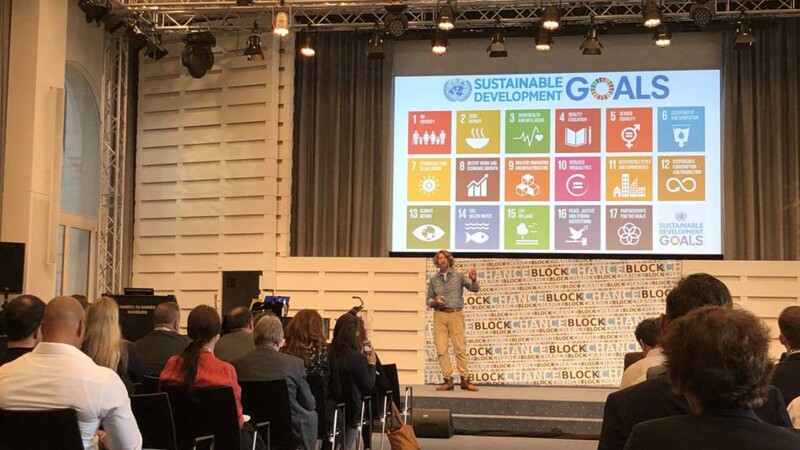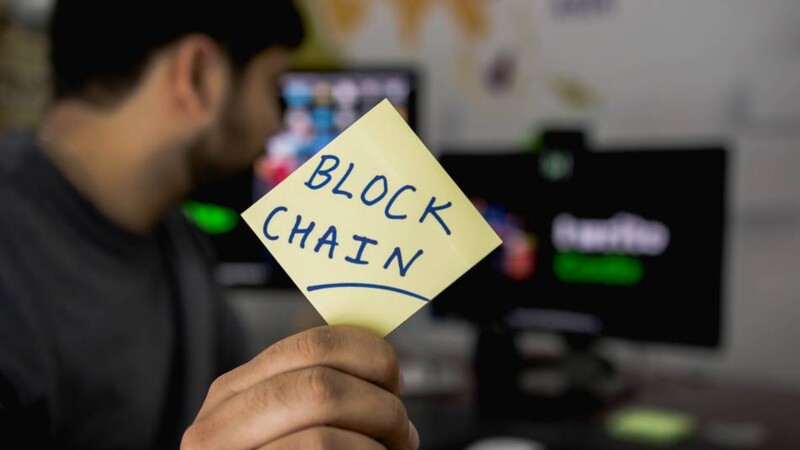The decentralised energy trading platform, Enerchain, went live in late May 2019 after the Hamburg-based IT company Ponton GmbH had launched the application in 2017. The proof of concept had finally been provided by 45 of Europe’s leading energy companies, who traded electricity and gas products with each other – decentrally and anonymously, said Michael Merz, Managing Director of Ponton. “The energy industry is very heavily regulated and there are hardly any cases of fraud.” Thus confidence in the electricity market is high. “Blockchain technology is only of interest, if it helps reduce the external costs of trading,” Merz explained. Blockchain will make transmission and checking offers far more efficient than through intermediaries. Those taking part in the Enerchain market can operate their “blockchain nodes” themselves and their operations are not reliant on third parties. This in turns leads to lower transaction costs, which should lower the threshold to accessing the market.
Although blockchain technology is not expected to revolutionize the energy industry in the short term, a study by the Forschungsstelle für Energiewirtschaft e. V.(FfE) has found, it is forecast to become a firm part of the energy industry in the long term. Hamburg is relying on “real strengths” to achieve this goal, said Michael Westhagemann, Senator for Economics. Several flagship, energy trade and grid projects and centring on blockchain technology are underway in the city and the Hamburg Metropolitan Regioin. Hamburg News presents four pilot projects:
Enerchain for energy trading without intermediaries
Enyway to accelerate energy system transition
The Hamburg-based, Enyway, exemplifies another use of blockchain technology. The company started out as an innovation hub at LichtBlick, which was founded by Heiko von Tschischwitz, and is now Germany’s largest supplier of environment-friendly electricity. In 2017, the independent company, Enyway, was set up and launched the first peer-to-peer marketplace for energy. Hopes are now high that Enyway can speed up the energy transition. The decentralised online marketplace, which offers eco-electricity such as solar power, wind energy and hydropower, is based on blockchain. Enyway is presently building its first subsidy-free community solar plant in Saxony-Anhalt.
Distributed Ledger Technology (DLT) enables individual solar modules to be divided transparently and counterfeit-proof into digital packages and assigned to respective customers – entirely without intermediaries. “We want to turn the anonymous electricity market into a place where people can do business with each other and turn energy around together. Traditional energy suppliers will become superfluous. Decentralised renewable energies will be boosted and the energy market will become more democratic,” said von Tschischwitz.
Avoiding grid bottlenecks with Etiblogg
The ETIBLOGG (Energy Trading vIa Blockchain-Technology in the LOcal Green Grid) project aims to develop blockchain-based solutions to make trading even the smallest amounts of energy more efficient and faster. If neighbour A, for instance, has a photovoltaic system, but does not use all of the energy produced, he/she might sell energy to his/her next-door neighbour B using the ETIBLOGGnetwork. This kind of immediate and local energy trading would ease the burden on the German national power grid and benefit individual power producers, like owners of photovoltaic systems at the same time. Ultimately, this could advance the expansion of renewable energies.
Blockchain technology should allow participants to exchange data and effectuate a decentralized trading process. The project is funded by the German Ministry of Economics and Energy and is supported by 12 companies and research institutions including the Consider it GmbH personnel consultants, NXP Semiconductors Germany GmbH, Ponton GmbH and the University of Hamburg. The three-year research project ends in March 2021.
NEW 4.0 smart market – short-term relief for wind energy grids
Blockchain technology is crucial to the NEW 4.0 Innovation Alliance, initiated by Hamburg and Schleswig-Holstein. A decentralized and local marketplace for renewable energy is central to the project. Although Enerchain is used to trade futures, e.g. the supply of electricity or gas over a longer period of time, NEW 4.0. is about very short-term supplies, said Merz. Strong fluctuations in wind power production in Schleswig-Holstein mean that the energy must be used in the north to relieve the load on grids to the south. This can be achieved, if an industrial consumer increases their consumption temporarily and wind turbine operators sell their additional electricity locally and at a slightly lower price. The so-called “grid-serving flexibility” protects electricity grids and prevents wind turbines from shutdowns.
Short-term transactions will be handled via the so-called NEW 4.0 Smart Market and the first deal was concluded in spring 2019. More tests are to follow involving Trimet Aluminum SE, the steel group Acelor Mittal and the copper producer Aurubis as well as the municipal public utilities companies in Flensburg and Norderstedt by late 2020. Hamburg Energie GmbH and Ponton GmbH, which is responsible for developing the software, are among the city’s other partners to the four-year project.
sb/pb
Sources and further information
Sources and further information:
www.ffe.de
www.buergerschaft-hh.de
www.enerchain.ponton.de
www.discover.enyway.com
www.etiblogg.de
www.new4-0.erneuerbare-energien-hamburg.de
More
Similar articles

Hanse Digital - blockchain based, trustworthy platform

Are blockchain and UN SDGs compatible?
